March to Gaza: una marcha sin vuelta atrás. ENGLISH March to Gaza: A march with no turning back. ESP ENG
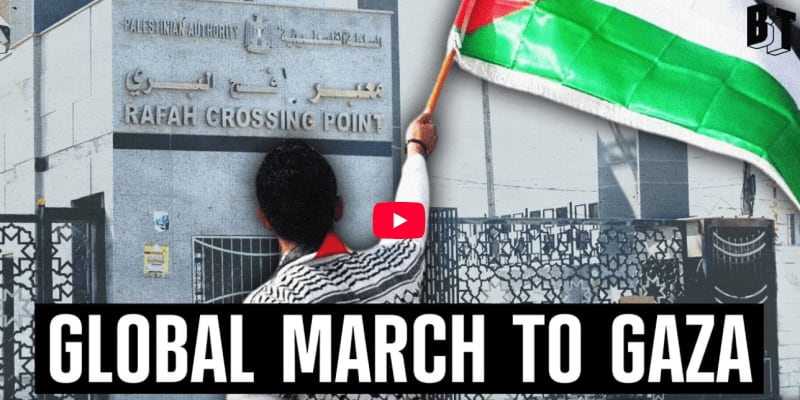
La Marcha a Gaza, un paso más hacia nuestra propia liberación como colectivo. The March to Gaza, one more step toward our own liberation as a collective.
ESPAÑOL
March to Gaza: una marcha sin vuelta atrás.
Por Sunera Sadicali, de Health Workers For Palestine, Spain, Sweden
"Non violence is a beautiful form of political theater when you have an audience" [«La no violencia es una hermosa forma de teatro político cuando se tiene público»]Arundhati Roy
He pensado mucho en esta frase, y creo que explica muy bien el activismo pacifista en occidente. Realmente es lo único que nosotras tenemos en nuestra mano. Usar nuestros cuerpos como un cinturón que marca la línea roja. Nuestros cuerpos como barricadas, como grito de protesta. Dejar nuestras vidas atareadas por una semana para dejar claro que ya basta. Escalar, y dar un sentido a la rabia tras 2 años de manifestaciones semanales y artículos, intentando despertar nuestras comunidades. Cuando decidí juntarme a la Marcha a Gaza (MTG) lo hacía por las ganas de ser parte de un movimiento de gente que quiere dar un paso más en visibilizar la barbarie, pero de esta vez lo más cerca de Gaza, de la que es ahora la arteria principal del mundo. Gaza late arrítmica y agonizante, desangrándose a cada minuto.
Nosotras queríamos marchar hacia allí, sentir esa pulsación, parar esta masacre continuada desde el 8 de octubre y el bloqueo que no permite la vida desde hace 77 años. No somos héroes, no vamos de salvadoras, y sabemos que la tarea es casi imposible. En las reuniones de preparación nos cuentan que es una acción de alto riesgo, por los militares egipcios, por las condiciones del desierto del Sinaí, por el uso descontrolado de la violencia de los sionistas. Pero quedarse es más difícil que irse. Y ya solo esta decisión ha provocado cambios en todo mi entorno. Por primera vez en 20 meses, las compañeras del centro de salud se preocupan, y empezamos hablar de Palestina abiertamente; con los vecinos, los conocidos, las gente con la que previamente no he podido hablar del genocidio, hablan del genocidio. Ahora no hay vuelta atrás.
El objetivo de cruzar el desierto de Al-Arish a Rafah, en un intento de forzar la apertura de la frontera de Rafah para la entrada de ayuda humanitaria más básica, usar nuestros cuerpos como protesta hacia una audiencia mundial pasiva y servil. Imágenes de niños amputados, en los huesos por el hambre, gritos de niños despidiéndose de sus padres, torturas inconcebibles, en nuestros pensamientos, nos llevan a no dudar.
Un día antes de la llegada masiva de los participantes de la MTG, prevista para el día 12 de junio, las autoridades egipcias ya habían empezado a deportar a compañeros/as. Seguirán los arrestos sin ningún motivo, la confiscación de los pasaportes y un despliegue policial amplio en toda la ciudad. Más de 500 personas deportadas y 200 arrestos. La organización cambia de planes y nos convoca a todos a Ismailia (más cerca de Arish). Las fuerzas de seguridad egipcias ya se encontraban en los tres diferentes checkpoints camino a Ismailia. Nosotras, parte de la delegación sueca, hemos conseguido llegar hasta el segundo checkpoint, cuando los policías nos envían de vuelta a El Cairo. Quedamos en la manifestación que surgió de forma espontánea tras los arrestos y la carga policial, una ola tremenda de solidaridad donde gente de todo el mundo gritaba por Palestina y por el fin del genocidio en Gaza. Al llegar de vuelta a El Cairo, elegimos un hotel aleatoriamente y, nada más llegar, nos intercepta un policía de los servicios secretos, según nos informa él mismo, que nos amenaza con el arresto y nos explica que somos una amenaza a la seguridad nacional del país. Seguirán varios días con la sensación de estar perseguidas, llevándonos a mantener la apariencia de turistas.
En nuestro grupo de cuatro mujeres, nos acompañaba una parlamentaria sueca. Gracias a diversos contactos locales, logramos establecer vínculos con organizaciones que brinda apoyo a personas refugiadas y supervivientes del genocidio en Gaza.
Dedicamos los tres últimos dias a visitar una organización que acompaña a familias palestinas de Gaza. Allí se ofrecía alojamiento, asistencia logistica y sanitaria a quienes lograron salir justo antes del 7 de octubre, o durante el breve cese al fuego en medio del genocidio. Escuchamos los testimonios de más de 40 personas. Historias estremecedoras de pérdidas familiares, hijos e hijas asesinados, amputaciones, enfermedades como el cáncer, y un niño que quedó ciego a causa de lesiones oculares por la presión de un bombardeo. Cada relato era un espejo de un dolor insoportable, imposible de abarcar con palabras. Y, sin embargo, en medio de tanto horror, nos sorprendía la inmensa resiliencia de los/las gazatíes.
Entre cada historia se colaban risas, detalles cotidianos, gestos de calidez compartida que parecían venir de otra realidad. Visitamos dos casas de mujeres, estuvimos con pacientes ingresadas por cáncer, y el último día conocimos a hombres que han pasado más de 23 años como prisioneros políticos, sin cargos formales. Relatos de horror. Cada persona con la que hablamos expresaba el mismo anhelo profundo: que se abra el paso hacia Gaza. Todos quieren regresar. Todos prefieren morir en su tierra antes que seguir sobreviviendo en el limbo. En Egipto, viven atrapados en condiciones indignas, dependiendo de organizaciones que apenas les ofrecen lo mínimo, con restricciones constantes a su libertad y, sobre todo, con el corazón rasgado por la distancia de sus familias, que aún resisten en el epicentro del genocidio.
Un joven, amputado de la pierna derecha tras el bombardeo que destruyó su casa, nos relató cómo distintas organizaciones acudían solo para tomarse fotos con él, trayéndole prótesis que no se adaptaban a sus necesidades. Nos habló de su impotencia ante la corrupción, del sentimiento de ser usado, manipulado, olvidado. Como él, muchos sienten que el mundo entero les ha abandonado. Pero, pese a todo, insisten: su amor por la vida es lo que les impulsa a volver. Volver a Gaza, reencontrarse con los suyos, y seguir luchando por su tierra. Hasta el final.
Sumud, la perseverancia, la resistencia, estaba presente en cada uno de sus relatos. Agradezco profundamente haber conocido a estas personas. Porque Sumud no es solo una palabra si no que una forma de vida que el pueblo palestino lleva practicando desde hace más de 77 años. Es la capacidad de amar la tierra, la cultura, la vida misma, incluso cuando todo alrededor empuja hacia la muerte. La muerte deja de ser un fracaso o un final, es un acto de dignidad, el reencuentro con quienes ya no están, el elevarse al Janaa. Morir luchando por la justicia, por su tierra.
La Marcha a Gaza ha sido un paso más hacia Gaza, un paso más hacia nuestra propia liberación como colectivo. Un paso más a vivir la vida con el Sumud que nos enseña el pueblo palestino. Que esta llama se prenda por el mundo.
| ENGLISH
March to Gaza: A march with no turning back. By Sunera Sadicali, Health Workers for Palestine, Spain, Sweden "Nonviolence is a beautiful form of political theater when you have an audience." Arundhati Roy I've thought a lot about this phrase, and I think it explains pacifist activism in the West very well. It's really the only thing we have in our hands. Using our bodies as a belt marking the red line. Our bodies as barricades, as a cry of protest. Leaving our busy lives for a week to make it clear that enough is enough. To climb, and give meaning to the rage after two years of weekly demonstrations and articles, trying to awaken our communities. When I decided to join the March to Gaza (MTG), I did so out of a desire to be part of a movement of people who want to take a step further in making barbarism visible, but this time as close as possible to Gaza, to what is now the main artery of the world. Gaza beats arrhythmically and agonizingly, bleeding with every minute. We wanted to march there, feel that pulse, stop this massacre that has continued since October 8 and the blockade that has prevented life for 77 years. We are not heroes, we are not saviors, and we know the task is almost impossible. In the preparation meetings, they tell us it is a high-risk action, due to the Egyptian military, the conditions in the Sinai Desert, and the Zionists' uncontrolled use of violence. But staying is harder than leaving. And this decision alone has brought about changes in my entire environment. For the first time in 20 months, my colleagues at the health center are concerned, and we begin to talk openly about Palestine; with neighbors, acquaintances, people with whom I had previously been unable to discuss the genocide, they talk about it. Now there is no turning back. The goal of crossing the Al-Arish desert to Rafah, in an attempt to force the Rafah border open for the entry of the most basic humanitarian aid, is to use our bodies as a protest to a passive and servile global audience. Images of children with amputations, bones cut off by hunger, cries of children saying goodbye to their parents, inconceivable torture, in our thoughts, lead us to no doubt. A day before the mass arrival of MTG participants, scheduled for June 12, the Egyptian authorities had already begun deporting comrades. Arrests without any reason, the confiscation of passports, and a massive police deployment throughout the city will follow. More than 500 people will be deported and 200 arrested. The organization changes plans and summons us all to Ismailia (closer to Arish). Egyptian security forces were already at the three different checkpoints on the way to Ismailia. We, part of the Swedish delegation, managed to reach the second checkpoint, when the police sent us back to Cairo. We met at the demonstration that spontaneously erupted after the arrests and the police charge, a tremendous wave of solidarity where people from all over the world shouted for Palestine and an end to the genocide in Gaza. Upon returning to Cairo, we randomly chose a hotel and, as soon as we arrived, we were intercepted by a secret service officer, who, according to him, threatened us with arrest and explained that we were a threat to the country's national security. We remained for several days feeling persecuted, leading us to maintain the appearance of tourists. In our group of four women, we were accompanied by a Swedish parliamentarian. Thanks to various local contacts, we managed to establish links with organizations that provide support to refugees and survivors of the genocide in Gaza. We spent the last three days visiting an organization that supports Palestinian families in Gaza. There, shelter, logistical assistance, and medical care were offered to those who managed to leave just before October 7, or during the brief ceasefire amid the genocide. We heard the testimonies of more than 40 people. Harrowing stories of family loss, murdered sons and daughters, amputations, illnesses like cancer, and a child who was left blind due to eye injuries from the pressure of a bombing. Each story reflected an unbearable pain, impossible to encompass in words. And yet, amidst so much horror, we were surprised by the immense resilience of the Gazans. Between each story, laughter, everyday details, and gestures of shared warmth seemed to come from another reality. We visited two women's homes, met with patients admitted for cancer, and on the last day, met men who have spent more than 23 years as political prisoners, without formal charges. Tales of horror. Every person we spoke to expressed the same longing. Every person we spoke to expressed the same profound longing: for the passage to Gaza to be opened. They all want to return. They all prefer to die in their homeland rather than continue surviving in limbo. In Egypt, they live trapped in undignified conditions, dependent on organizations that barely offer them the bare minimum, with constant restrictions on their freedom and, above all, their hearts torn by the distance from their families, who are still resisting at the epicenter of the genocide. A young man, whose right leg was amputated after the bombing that destroyed his home, told us how various organizations came just to take photos with him, bringing prosthetics that didn't fit his needs. He spoke of his helplessness in the face of corruption, of the feeling of being used, manipulated, forgotten. Like him, many feel that the entire world has abandoned them. But despite everything, they persist: their love for life is what drives them to return. To return to Gaza, to reunite with their loved ones, and to continue fighting for their land. Until the end. Sumud, perseverance, and resilience were present in each of their stories. I am deeply grateful to have met these people. Because Sumud is not just a word but a way of life that the Palestinian people have practiced for more than 77 years. It is the ability to love the land, the culture, life itself, even when everything around them pushes toward death. Death is no longer a failure or an end; it is an act of dignity, the reunion with those who are no longer with us, the rising to Janaa. To die fighting for justice, for one's land. The March to Gaza has been one more step toward Gaza, one more step toward our own liberation as a collective. One more step toward living life with the Sumud that the Palestinian people teach us. May this flame be lit throughout the world. |
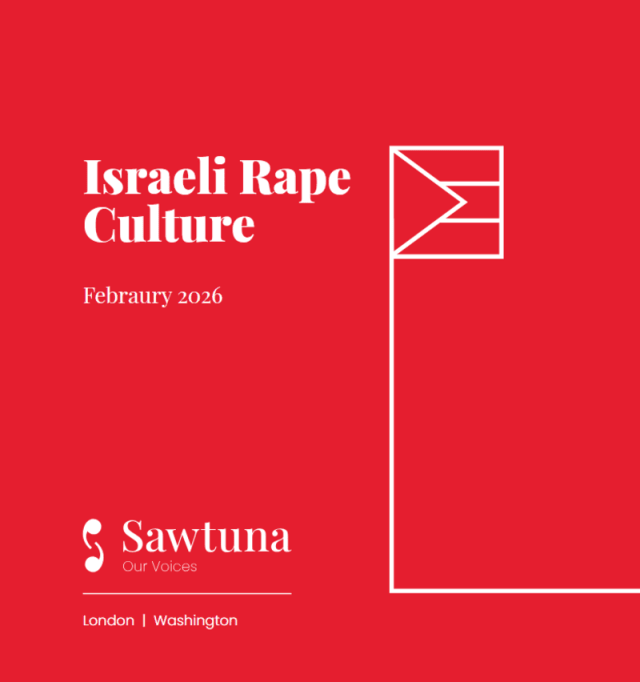
Israeli rape culture. Cultura israelí de la violación sexual. ENG ESP
Zionism is inherently imbued with rape culture. El sionismo como cultura de la violación
Publicado hoy.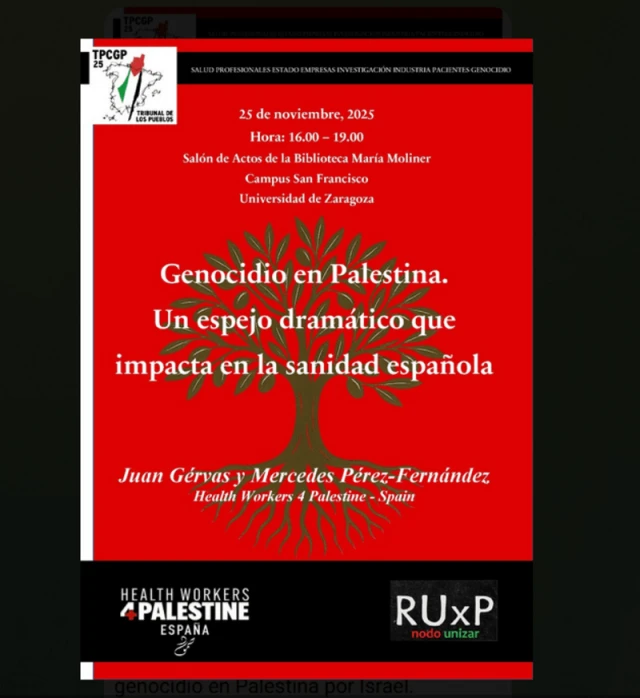
Vídeo. "Genocidio en Palestina. Un espejo dramático que impacta en la sanidad española" Vídeo 90 min
Encuentro en Zaragoza, preparación para el Tribunal de los Pueblos sobre la Complicidad con el Genocidio palestino en el Estado español TPCGP-25.
Publicado hace 2 días.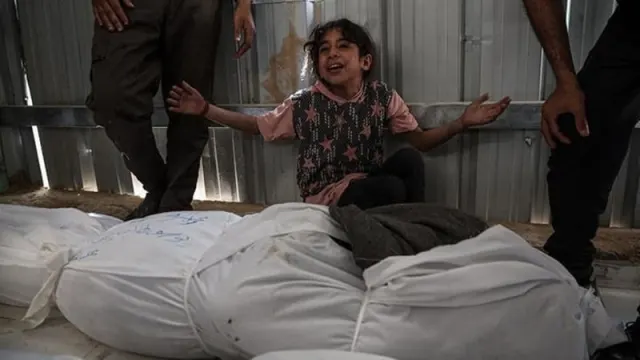
Gaza’s Orphan Crisis: 40,000. En Gaza, 40.000 huérfanos ENG ESP
40,000 children after losing one or both parents. 40.000 niños en Gaza sin uno o dos padres
Publicado hace 7 días.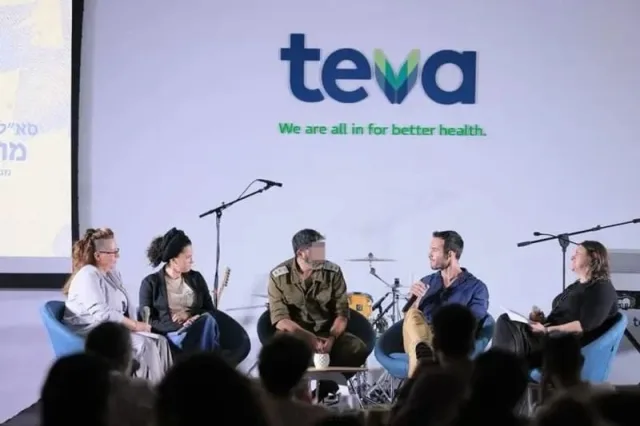
Teva y el ejército de Israel (IDF). Teva and the Israel Defense Forces (IDF). ESP ENG
Teva apoya directamente el genocidio palestino. Teva directly supports the genocide against Palestinians.
Publicado hace 14 días.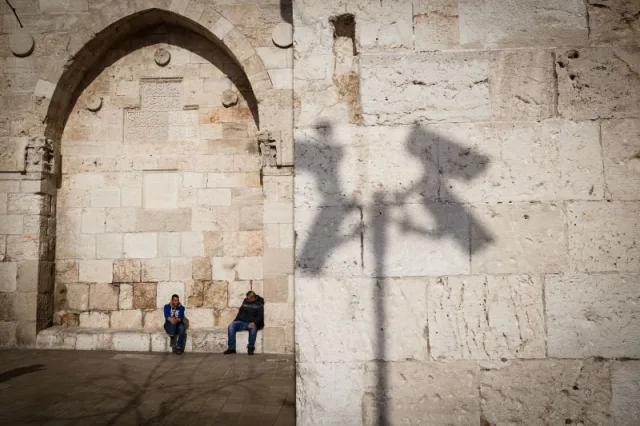
ICE operations (USA) versus Israel occupation of Gaza. EEUU, policía de inmigración versus Israel ocupación de Gaza. ENG ESP
“Imperial-colonial boomerang” in action. El «bumerán imperial-colonial» en acción
Publicado el 13 de febrero.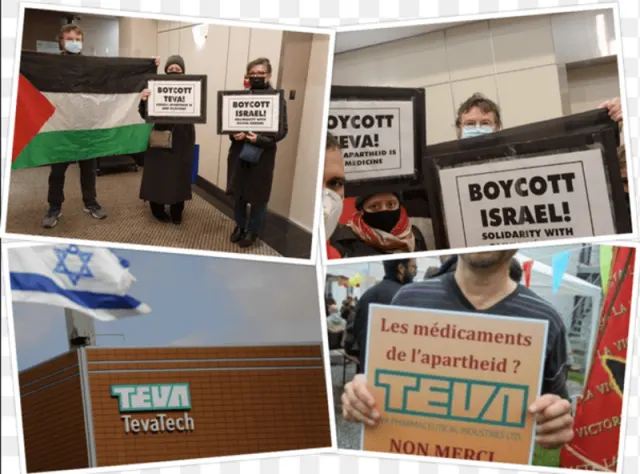
Teva, growing global backlash. Teva, boicot creciente ENG ESP
Teva: politics and business over compassion and ethics. Teva: política y negocio sobre compasión y ética
Publicado el 10 de febrero.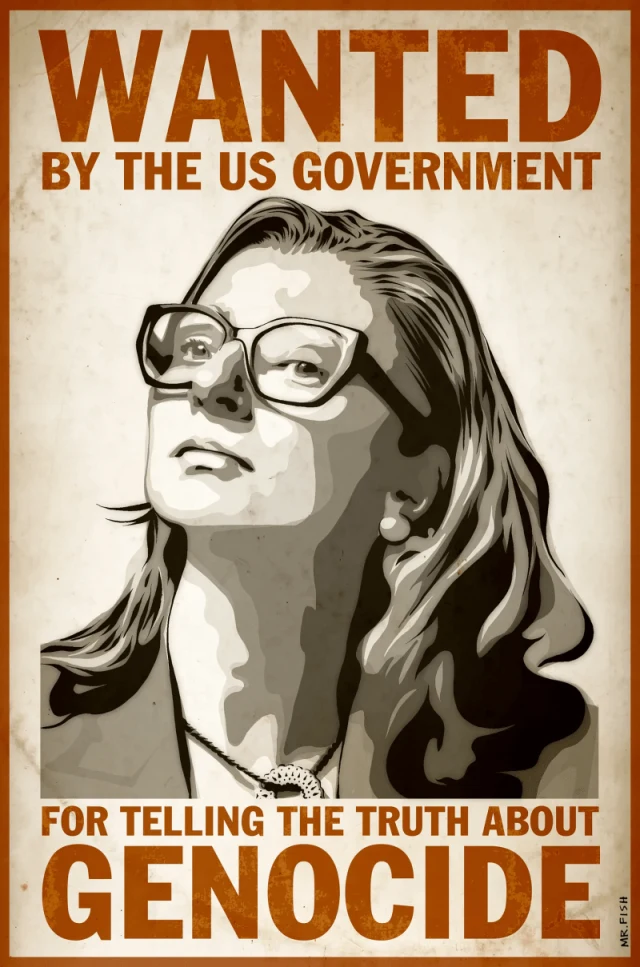
"Si Francesca Albanese es terrorista, yo también". "If Francesca Albanese is a terrorist, then so am I" ESP ENG
"Una relatora de derechos humanos de la ONU, tratadа como terrorista por documentar el genocidio en Gaza". "A UN human rights rapporteur, treated as a terrorist for documenting the genocide in Gaza"
Publicado el 9 de febrero.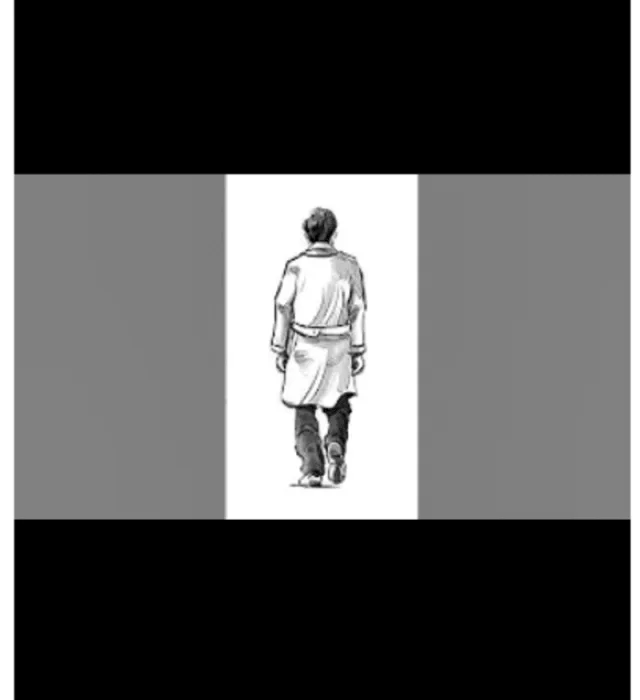
Vídeo, 60 sg. Dr. Hussam Abu Safiya. Lazos Rojos por la liberación de rehenes palestinos.
Campaña por la liberación de rehenes palestinos
Publicado el 7 de febrero.Ver más / See more


